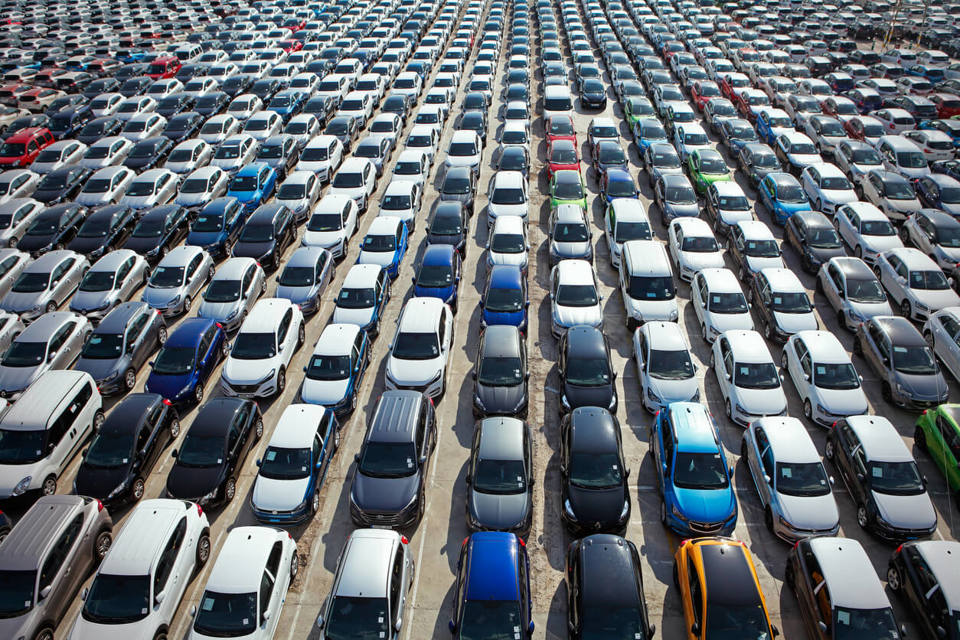The used car market is booming, with Cap HPI reporting the largest increase in values seen in 12 years.
It recorded an overall increase of 2% at the 3-year point during April, equivalent to about £275 per vehicle, at a time of year when traditionally values tend to fall.
Car showrooms reopened on April 5 in Scotland and April 12 in England, and according to the head of valuations at Cap HPI, Derren Martin, consumer demand “went through the roof”.
“There were reports of consumers queuing at the door before some opened and once they were open,” he said.
“Car supermarkets, in particular, experienced hugely increased business levels as the opportunities for consumers to turn up without an appointment and browse around a forecourt were seized upon.”
Cap HPI believes that, rather than just being ‘pent-up’ demand, people have saved during lockdown and want to treat themselves.
Aspirational purchases of premium brand cars or of convertibles and sports cars, vehicles that may not have been under consideration previously, are doing well, for example.
Convertibles continue to see the biggest price rises overall, by an average of almost 5% or £775 at 3-years old.
"The lease and contract hire sector can’t get new product and therefore can’t de-fleet many of those low mileage, nearly new cars," Philip Nothard, Cox Automotive
SUVs have gone up by an average of 2.4% at the 3-year, 60,000 mile point (almost £350) during April, with models such as the BMW X3, Porsche Macan, Skoda Karoq and Volvo XC40 all outperforming the average, with some going up by more than £1,000 in the month – most of the increase being in the last 2-weeks.
Martin expects the used car market to continue to be strong. “We are expecting demand to continue to be high, whilst supply issues in the new car market, not least because of semiconductor shortages, mean there will be consumers turning to used cars and a lack of part exchanges in the market, demand could well outstrip supply,” he said.
BCA reported a “significant and noticeable uptick” in demand and increased average values in the week following the relaxation of some lockdown restrictions in England.
Average values rose by £1,223 (15.8%) during the week commencing April 12 as demand heated up and professional buyers competed strongly for stock via BCA Online and the BCA Buyer app.
Conversion rates improved and sold volumes jumped by 17%. Performance against guide values also accelerated, rising by 1.7 percentage points to 101.9% across the board.
Bidder numbers continued to climb, with average daily online attendance numbers nearing 5,000 as BCA’s digital sales programme offered up to 7,000 vehicles daily during April.
Values for stock from corporate sellers reached its highest point this year, improving by £269 (2.2%) to reach £12,337.
Used car market volumes
Cox Automotive says stock uncertainty will continue for the short term. With manufacturers severely struggling with supply of new cars, and potential delays in de-fleet programmes, there is likely to be a knock-on effect in terms of volumes entering the used market, it says.
It was previously hoped that a release of rental and fleet vehicles into the market would stimulate recovery, filling forecourts with used cars and counteracting the supply issues that arose throughout 2020 as fleets held on to their vehicles for longer than expected.
However, as Philip Nothard, Cox Automotive’s insight and strategy director, explained: “The news that manufacturers are struggling with the supply of new cars will be felt at dealers when it comes to obtaining stock. This means that the lease and contract hire sector can’t get new product and therefore can’t de-fleet many of those low mileage, nearly new cars that were hoped to enter the used car market in significant volume in the coming months.
“We had hoped that a regular and well-sized supply of de-fleeted vehicles would prove key to restoring a thriving, competitive used market. However, our latest warning does reflect the expectations of dealers, with 82% expecting supply to remain the same or decrease, and 33% predicting that wholesale prices would go up.”
The most likely new car forecast for Q2 2021, is 520,835 registrations, representing a 5.9% drop compared to 2000 to 2019 pre-pandemic average, according to AutoFocus.






















Login to comment
Comments
No comments have been made yet.